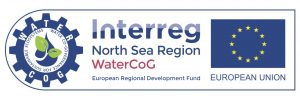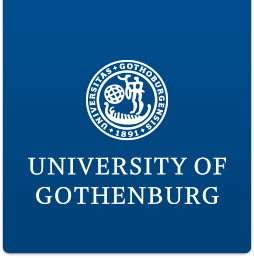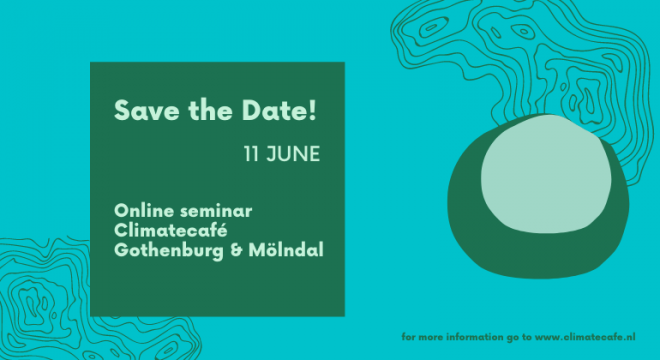(in Swedish: https://www.vattenmyndigheterna.se/kalenderhandelser/2021-04-06-klimatkafe-slutseminarium.html)
This online Climatecafé is a collaboration between Mölndal’s water council, Gothenburg University, Hanze Univeristy of Applied Sciences, Gothenburg Museum of Natural History, County administrative board of Västra Götaland,Water district authority of Skagerrak and Kattegat and HDK-Valand – Academy of Art and Design.
This Climatecafé offered virtual field trips and different workshops on different approaches to local climate challenges. Together we tackled water related issues from multiple angles and raised awareness. We used multiple tools and methods, such as ClimateScan.org, storytelling, art and design thinking. An impression of the results can be viewed here:
Workshop Packages Part of this Climatecafé:
– Climate scan and Catchment area field trip – Online mapping, knowledge, and understanding of how environments in the catchment area are affected and affect climate change.
– Online Riverwalk – Understanding of the watercourse’s function, history and how it is part of a wider context, as well as gaining inspiration by experiencing the environment and sharing stories. To jointly explore and explore a watercourse on foot. Each participant shares their knowledge and impressions in a common description. Perspectives included: species, habitats, river structures, surroundings, local history, use of the water resource etc.
– Raintool – Adaptation Support Tool (AST) supports the collaborative planning of adaptation measures in urban areas for flooding, drought and heat stress.
– Storytelling – Using mind-map methodology you will get an understanding of the stakeholders perception on the issue. Stakeholders perceive their social ecological system (SES) in different ways. By using the mind-map methodology, stakeholder perceptions can be elicited and visualised. Participants will elicit stakeholder perceptions with mind maps and create a narrative with stakeholders. After elicitation, participants discuss and compare the different perceptions of stakeholders to understand similarities or differences.
– Design thinking – Workshop on ideating and prototyping concepts to raise awareness on the local issue. Design is a powerful tool to help people imagine new ways of living in a world facing the effects of climate change.
Creativity can help mobilize people and raise awareness on the issue of climate adaptation. With this tool we aim to brainstorm and prototype some creative solutions to the challenge of the city. The workshop has the aim to work from the data collected on the field trip towards a concept/prototype for a tangible product that can be later implemented by the stakeholders/problem owners.
– Participatory Art – Co-creating artwork together with the local community to open up conversation on the local climate change challenges
Partner Logos:



